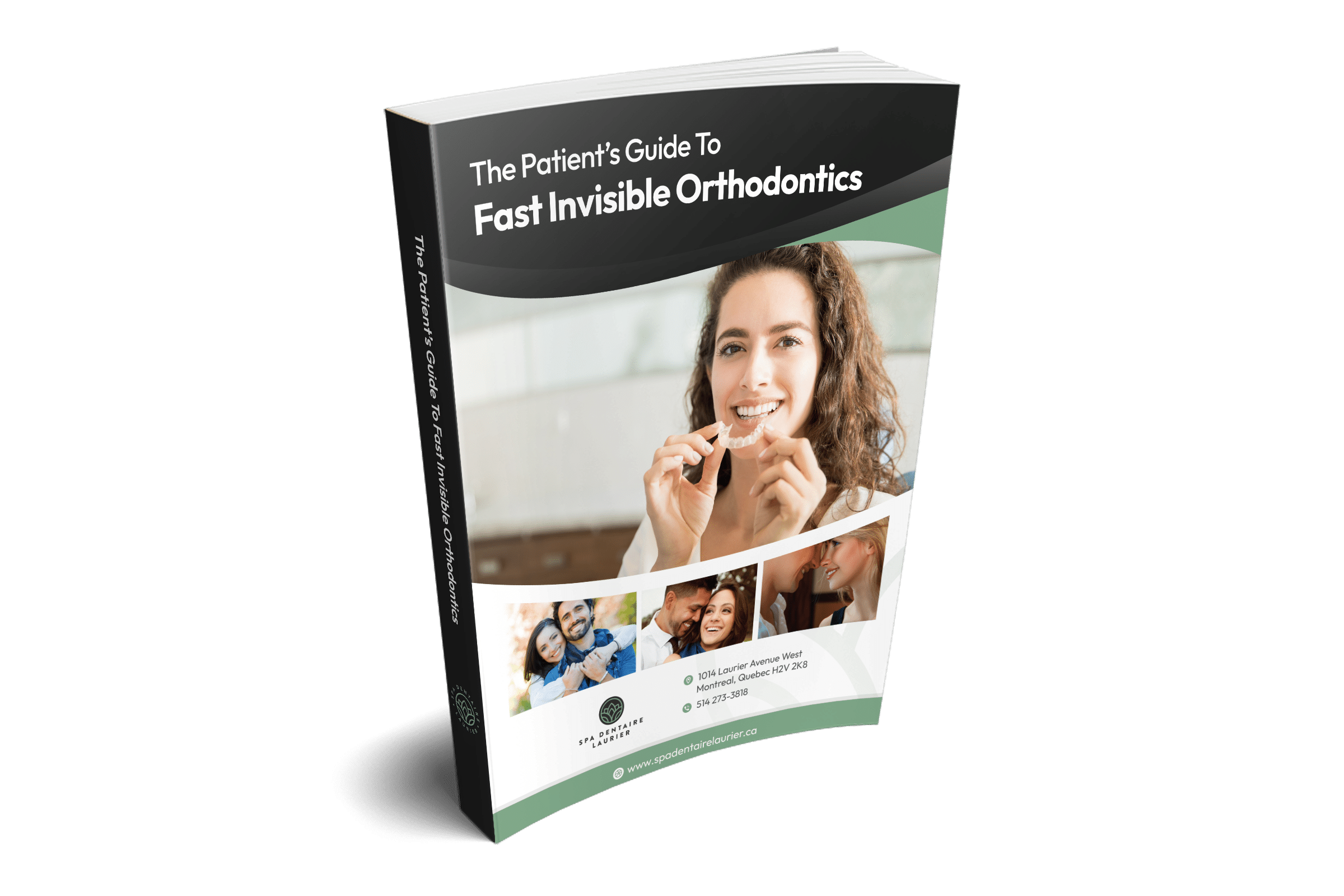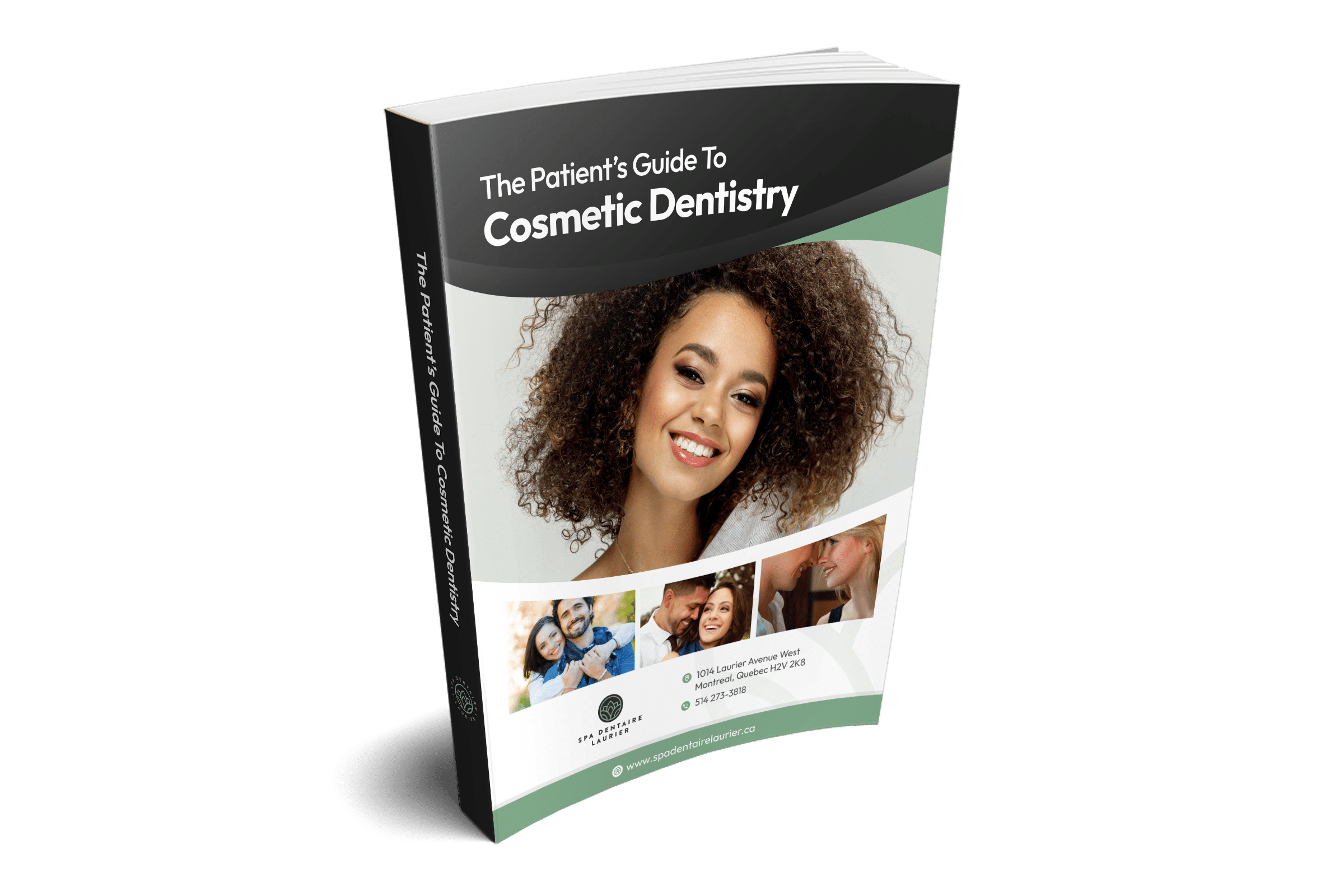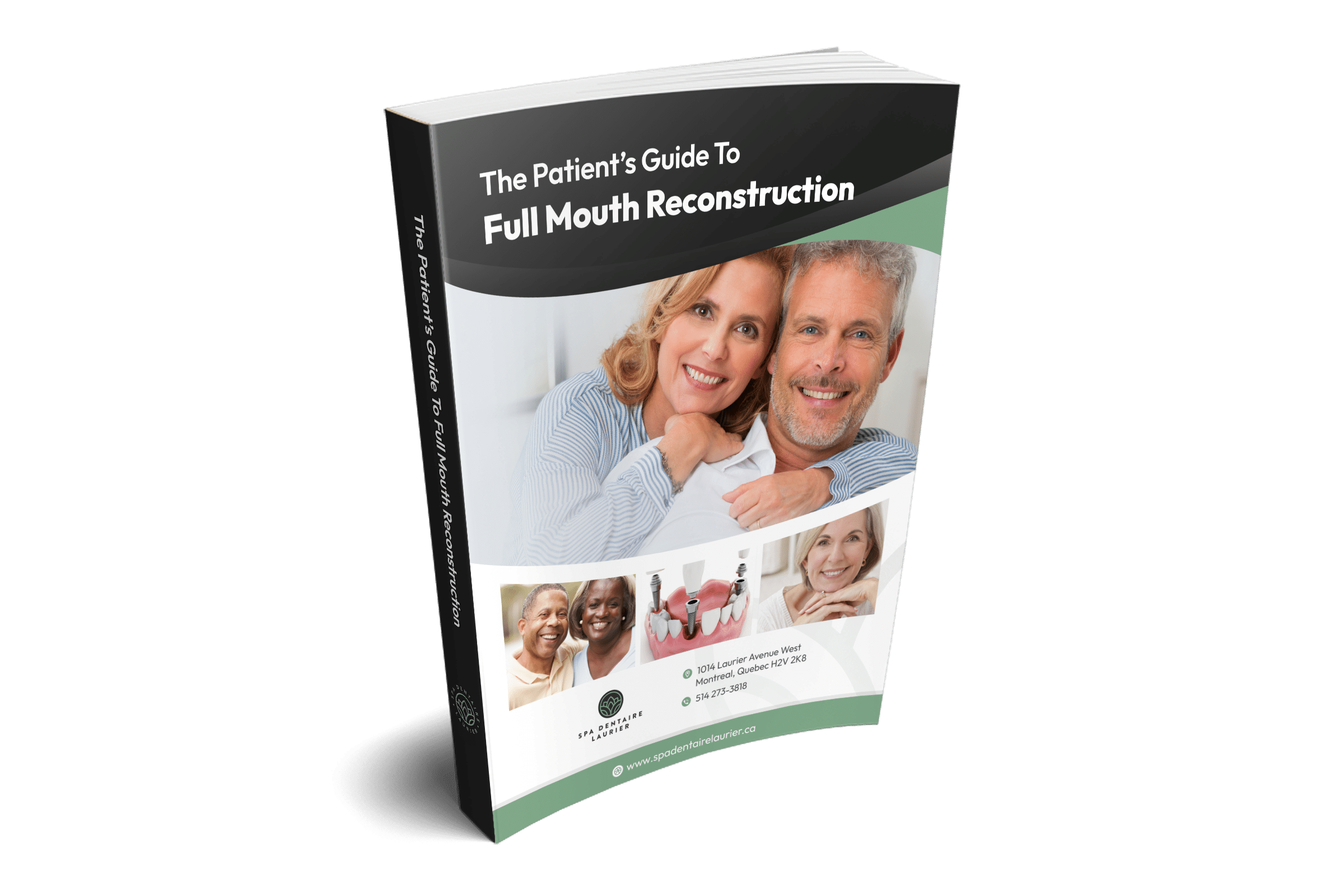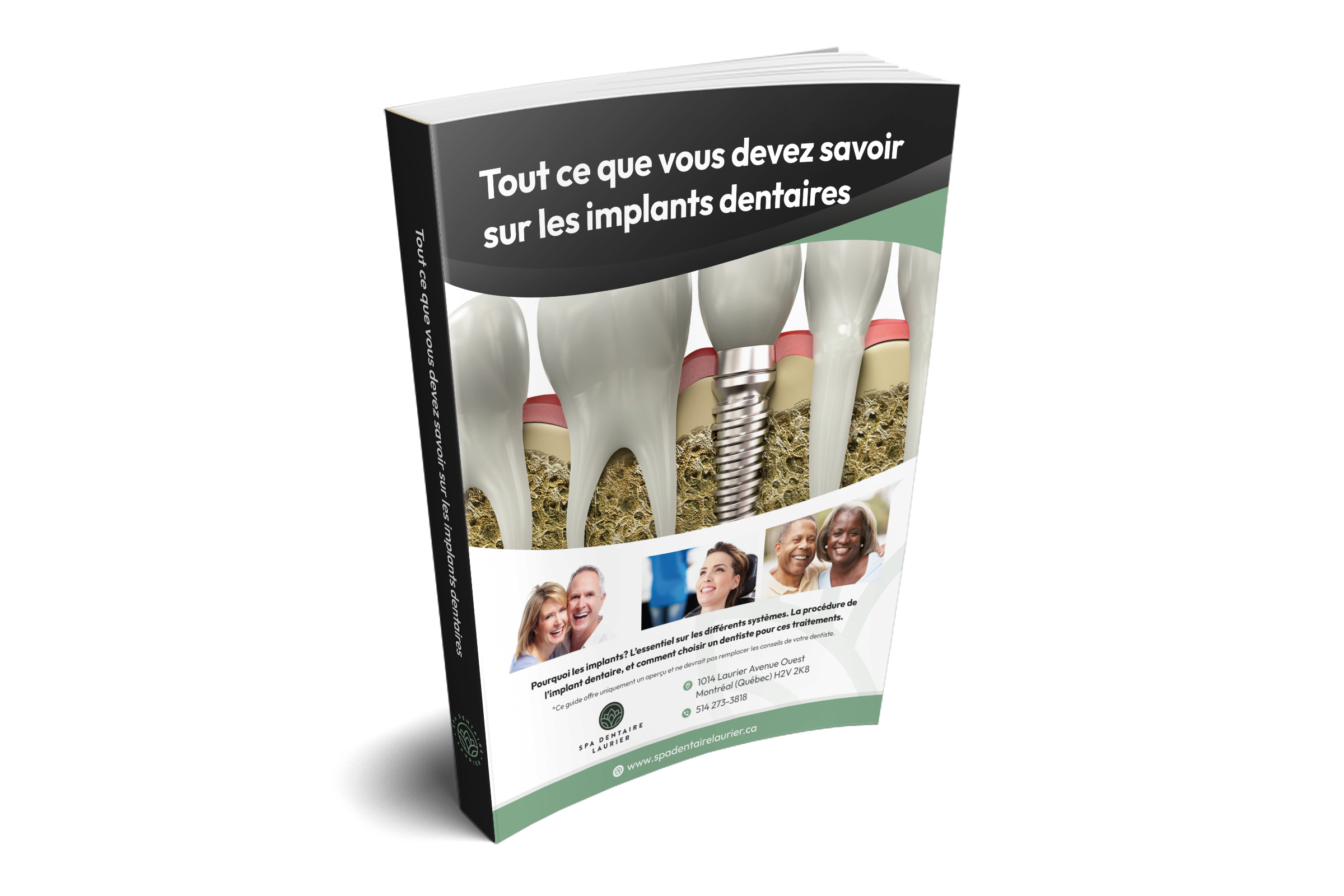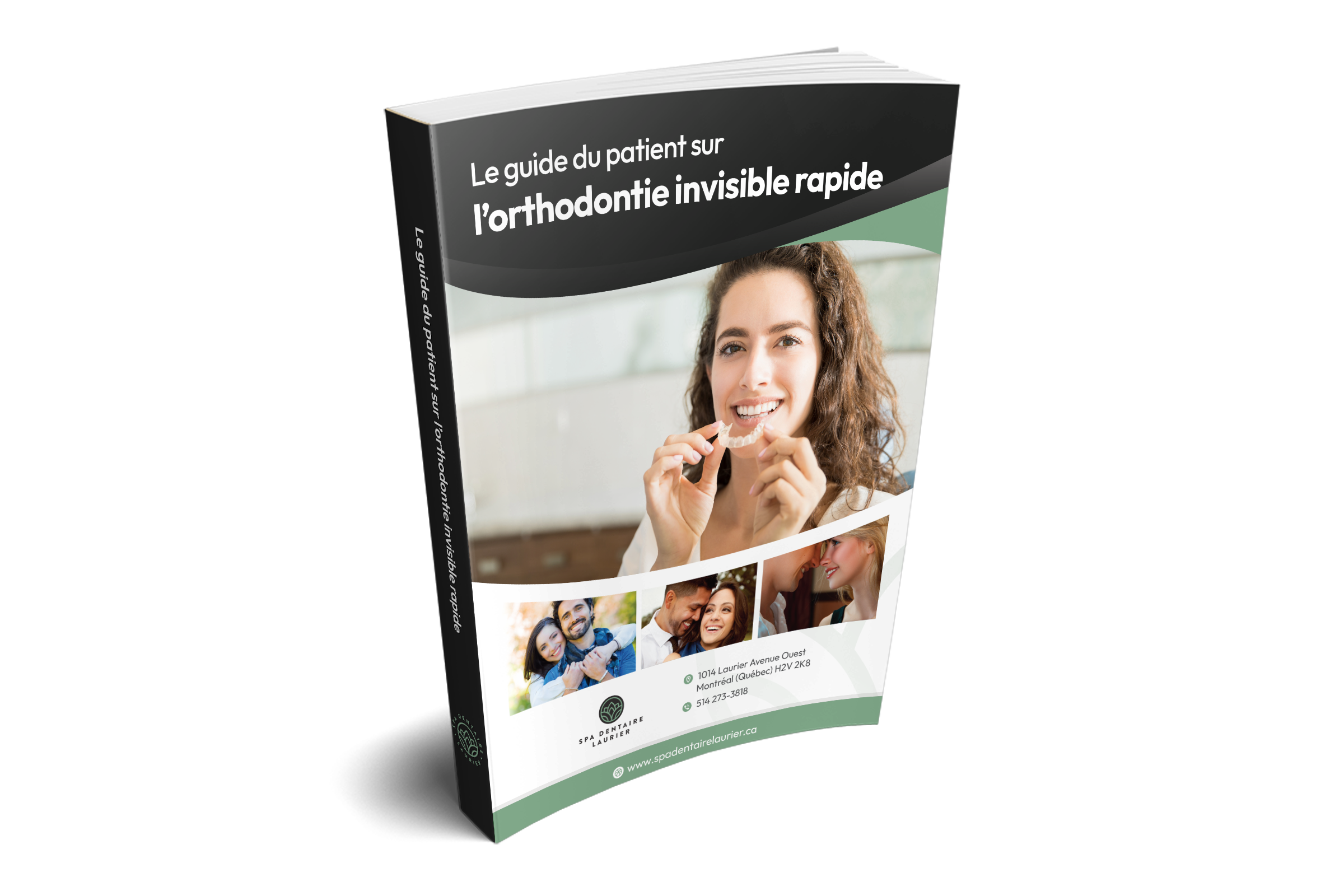What’s the difference between porcelain, composite resin and ultra-thin dental veneers?
Dental veneers are an increasingly popular aesthetic solution for correcting various problems related to the appearance of teeth. Whether teeth are misaligned, cracked, stained or worn, veneers offer the possibility of restoring a bright, harmonious smile. The history of dental veneers is fascinating, and bears witness to the ingenuity of dentists and their constant quest to improve smile aesthetics. However, there are many different types of veneers, each with its own characteristics and benefits. In this article, Dr. Pierre Comeau, D.M.D., general dentist, presents the differences between porcelain veneers, composite resin veneers and ultra-thin veneers, to help you make an informed choice for your smile.

Obtenez un beau sourire grâce aux facettes dentaires.
Porcelain dental veneers
Porcelain veneers are considered the most durable and resistant option. They are made from a thin shell of feldspathic porcelain or lithium disilicate, two extremely resistant and natural materials.
For most patients, the color of the porcelain veneer they choose will change very little over the next 30 years.
Advantages of porcelain dental veneers
- Exceptional durability: Porcelain veneers can last between 10 and 15 years, or even longer, with proper care.
- Stain resistance: Porcelain is a non-porous material, making it resistant to stains caused by wine, coffee or tobacco.
- Natural appearance: Porcelain’s translucency allows light to diffuse naturally, giving an aesthetic appearance close to that of natural teeth.
Disadvantages of porcelain dental veneers
- Dental preparation can be invasive: To place ceramic veneers, part of the tooth enamel must be removed, making the process irreversible.
- High cost: Porcelain veneers are generally more expensive than other options, due to the quality of the materials and the complex manufacturing process. A choice of high-level laboratories gives better results, but charge more for their expertise.
Composite resin dental veneers
Composite resin veneers, also known as “composite veneers”, are a more affordable alternative to porcelain veneers. They are made from a blend of synthetic resins and mineral fillers, offering a high-quality aesthetic solution.
Advantages of composite resin dental veneers
- Lower cost: Composite resin veneers are generally less expensive than porcelain veneers.
- Minimal tooth preparation: They require less invasive tooth preparation, making them more conservative for natural teeth.
- Repairability: Composite resin veneers can be repaired or replaced more easily than porcelain veneers.
Disadvantages of composite resin dental veneers
- Less durability: Composite resin veneers generally have a shorter lifespan, averaging 5 years, rarely more than 7.
- Susceptibility to staining: Composite material is more porous than ceramic, making it more susceptible to staining from certain foods and beverages. We often notice a loss of luster after the first year of manufacture.
- Limited shape changes: this option works well for hiding light colors and closing gaps, but can rarely be used to lengthen teeth. The composite resin structure has difficulty withstanding the forces of mastication.
- Less natural appearance: although technological advances have improved their appearance, composite resin veneers can sometimes look less natural than ceramic veneers.

Choisir la couleur de ses facettes dentaires minces.
Ultra-thin dental veneers
Ultra-thin veneers are porcelain dental veneers distinguished by their exceptional thinness, generally requiring little or no invasive dental preparation.
Advantages of ultra-thin dental veneers
- Non-invasive procedure: Ultra-thin veneers are so thin that they can be placed directly on natural teeth, without having to remove any enamel.
- High durability: Although thinner, ultra-thin veneers are made from high-quality porcelain, offering durability comparable to traditional ceramic veneers.
- Natural appearance: thanks to their translucency and thinness, ultra-thin veneers offer a very natural aesthetic result.
Disadvantages of ultra-thin dental veneers
- High cost: Ultra-thin veneers cost the same as traditional porcelain veneers.
- Aesthetic limitations: In some cases, ultra-thin veneers may not be suitable for correcting major dental problems, such as severely misaligned or worn teeth. Achieving a much whiter color than the original tooth can also prove difficult.
Our option: customized dental veneers for a radiant smile
At Spa dentaire Laurier, we understand that your smile is unique and precious. That’s why we offer a wide range of customized dental veneers, designed to meet your specific needs and expectations.
Dental veneers for every smile! As mentioned above, each type of dental veneer has its own advantages and disadvantages, so you can make an informed choice:
- Porcelain veneers: Offering exceptional durability and an incomparable natural appearance, these veneers represent the top-of-the-range choice. However, they require more invasive tooth preparation and are more expensive.
- Composite resin veneers: More affordable and less invasive, these veneers are an interesting alternative. However, they have a shorter lifespan and are more prone to staining.
- Ultra-thin veneers: Their non-invasive procedure and natural appearance make these veneers an attractive choice. Another advantage is that they are priced identically to porcelain veneers. In some cases, aesthetic limitations may be observed.
Our dental expertise at your service
The team of experienced dentists at Spa dentaire Laurier will guide you in choosing the dental veneer best suited to your situation, taking into account your aesthetic needs, your budget and your oral health.
A long-lasting, radiant smile
Whatever your choice, we’re dedicated to providing you with top-quality dental veneers, precisely fitted to the highest standards of hygiene. Your smile will be radiant and beautiful for years to come.
Can I see the final result before I start dental veneers?
Yes, the Laurier Dental Spa’s smile simulation service is designed for those who want to achieve a beautiful, natural, long-lasting smile, but want to get a glimpse of the final result before taking action. Smile simulations are performed using image capture and processing software as well as 3D modeling techniques to create a virtual representation of your smile after the procedure. And it only takes 30 minutes!
Discover other interesting articles about dental veneers:
When were dental veneers invented? The history of dental veneers.
Can dental veneers correct crooked, cracked or misaligned teeth?
How to choose the right color for your dental veneers?
Call us at (514) 273-3818 for more information
or to schedule an appointment for a free consultation.
Ask for your FREE consult today!



